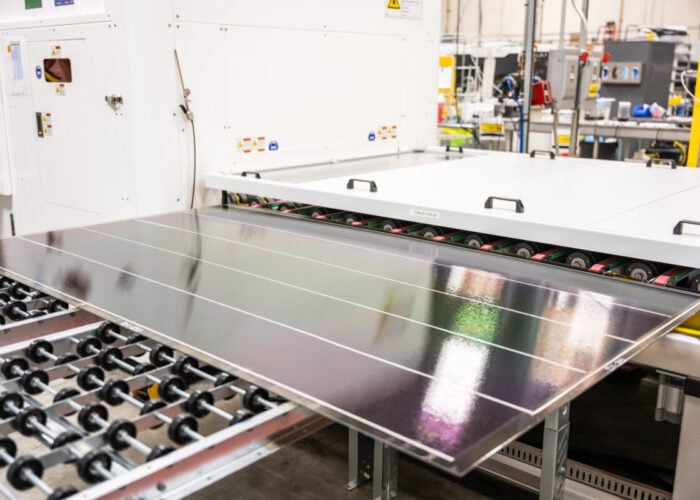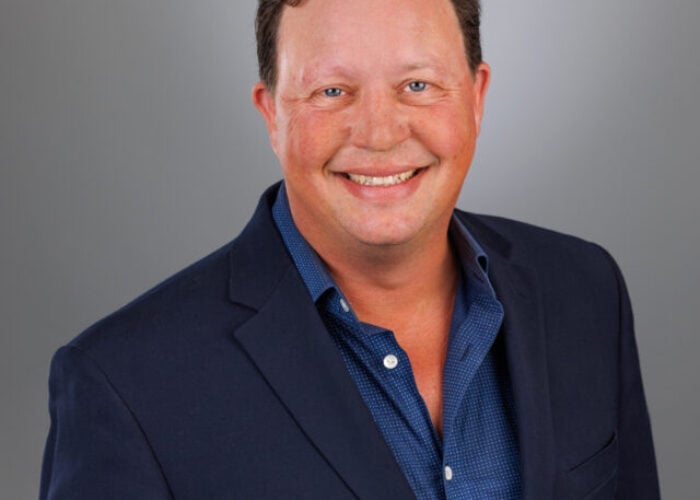
Swiss module manufacturer Meyer Burger will scrap its proposed 2GW solar cell manufacturing plant in Colorado, claiming that the project is “no longer financially viable”.
First announced last July, the facility was intended to supply cells for the company’s module assembly plant in Goodyear, Arizona, which began commercial operations in June. Meyer Burger has a number of module off-take agreements in place, including a deal to supply 5GW of modules to D. E. Shaw Renewable Investments (DESRI), and the company announced that it would rely on its cell production facility in Thalheim, Germany, to meet demand for its cells.
Unlock unlimited access for 12 whole months of distinctive global analysis
Photovoltaics International is now included.
- Regular insight and analysis of the industry’s biggest developments
- In-depth interviews with the industry’s leading figures
- Unlimited digital access to the PV Tech Power journal catalogue
- Unlimited digital access to the Photovoltaics International journal catalogue
- Access to more than 1,000 technical papers
- Discounts on Solar Media’s portfolio of events, in-person and virtual
However, this cancellation has forced Meyer Burger to amend some of its other production forecasts. Both the Thalheim cell facility and the Arizona module assembly plant have an annual production of 1.4GW, and without the additional cell capacity provided by the Colorado facility, Meyer Burger announced that the planned 700MW expansion of its Arizona facility has been “suspended for the time being”.
The company also announced that deputy chairman and member of the board of directors Mark Kerekes had resigned from his position, noting that “the realignment of the company will require a new composition of the board of directors”.
Financial challenges remain
The news follows a number of challenging financial periods for the company. In April, Meyer Burger announced that its losses had more than quintupled, falling from losses of CHF35 million (US$41.3 million) to CHF164 million between the end of 2022 and the end of 2023.
This was despite relatively stable sales figures over this period—falling marginally from CHF145 million to CHF135 million —and the company argued that the oversupply of modules made in Asia to the European market, and trade restrictions imposed by the US, had driven this collapse.
Looking ahead, the loss of the Colorado facility could prove damaging to the company’s long-term finances. Upon its announcement of the Colorado factory last year, Meyer Burger noted that its work could qualify the company for as much as US$1.4 billion in tax credits, under incentives offered by the Inflation Reduction Act (IRA) to incentivise building manufacturing capacity in the US.
The loss of these potential tax credits could undermine the company’s long-term financial outlook. In April, Meyer Burger announced that, in order to close what it called a “funding gap” that had driven its poor financial results in 2023, it would rely on a US$300 million tax credit under the 45X Advanced Manufacturing Tax Credit.
This is to say nothing of the cost of the Colorado facility, which was put at US$400 million by US secretary of state Antony Blinken, who spoke positively about the facility and the US’ position as “the world’s top destination for foreign investment” at the 2024 SelectUSA conference in June.
The company’s share price fell more than 50% yesterday, when the news was announced, and follows the loss of more than 90% of the shares’ values since the start of the year, due to these ongoing financial concerns. Meyer Burger also noted that it plans to publish its half-year results on 30 September, two weeks later than the original date proposed.
Following a ‘massive disappointment’ in Europe
While Meyer Burger still expects to achieve debt financing through the monetisation of 45X credits, the company noted that this approach would only be considered “on a reduced scale, tailored to module production in the US”.
This focus on US manufacturing is nothing new—the company’s CEO Gunter Erfurt told PV Tech Premium as much during the Intersolar 2024 conference earlier this year—but it is unclear how the company will follow what Erfurt called a “massive disappointment” in Europe, now that it plans to close the Colorado facility.
The news also follows Meyer Burger’s announcement of plans to close its Freiberg manufacturing plant. The company announced this closure mere days after new tools and equipment reached the Arizona facility, demonstrating the company’s new focus on the US market.







